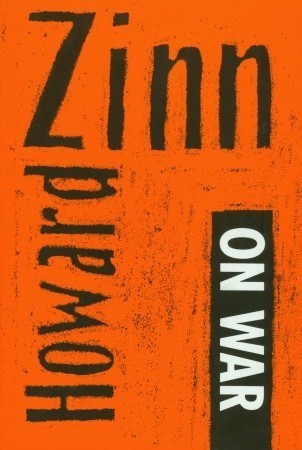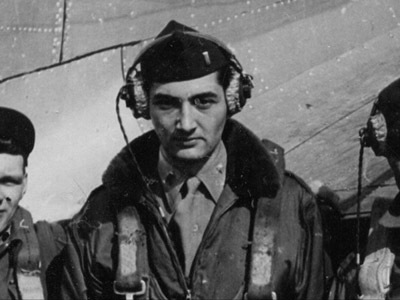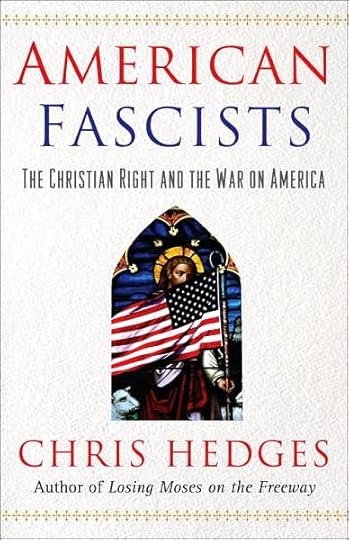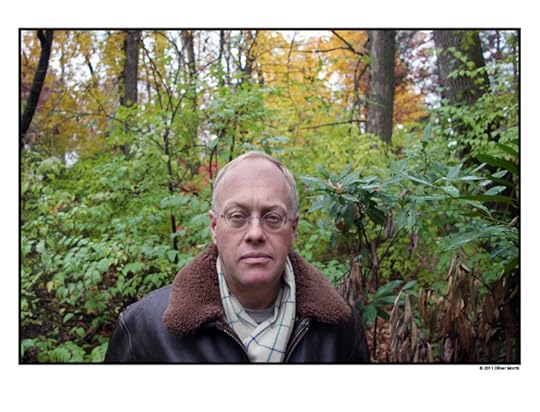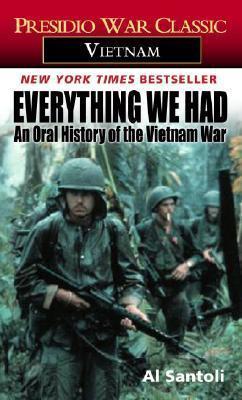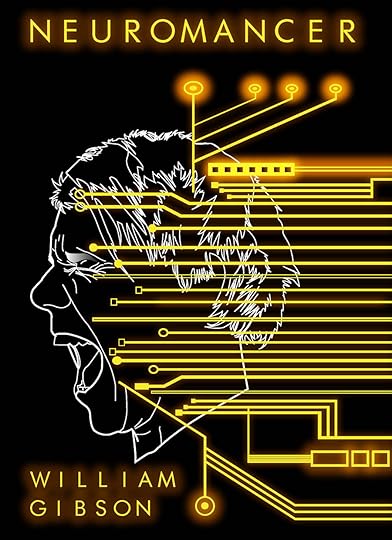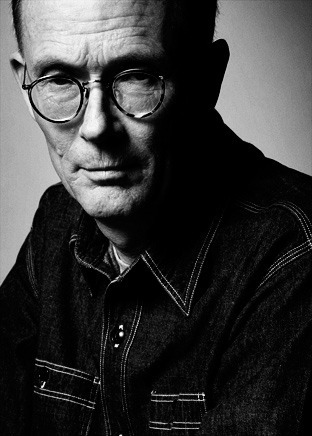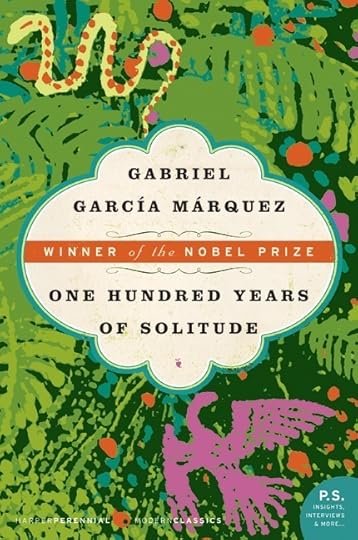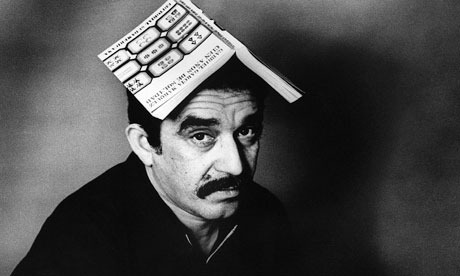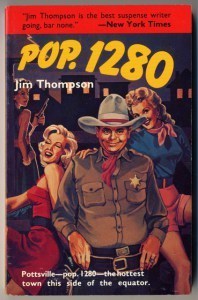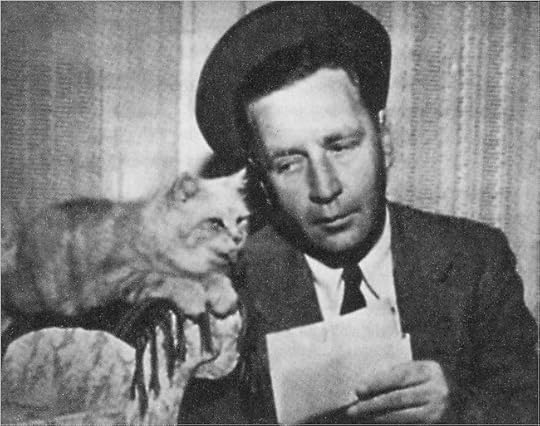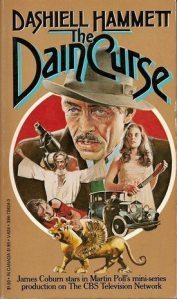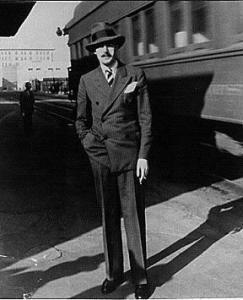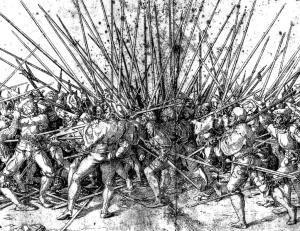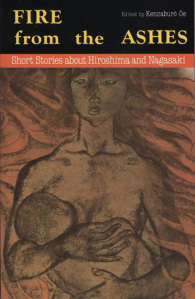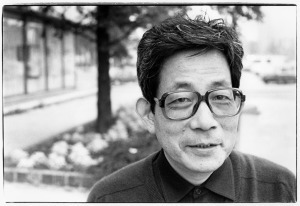Guillermo Galvan's Blog, page 2
May 8, 2013
Howard Zinn On War by Howard Zinn
The collection of essays by WWII veteran turned peace activist and history professor, Howard Zinn, in Howard Zinn On War is indispensable to any person seeking to understand the vulgar reality of war. What makes his essays powerful is his reinterpretation of a history we’ve all been brought up to believe. The spirit of Zinn’s writing is urged on by the same moral conviction that reinterpreted Christopher Columbus from a noble explorer to the more accurate description of a genocidal expansionist. Zinn applies this sense of historical integrity to the subject of war. The disgracing of nationally admired myths to their truthful representation is always painful, enlightening, and fiercely resisted. Zinn takes the highly unpopular stance that there is no such thing as a just war.
Zinn attacks the justification of atrocities committed under the guise of patriotic duty and self-deception. “When you plant a bomb in a discotheque, the death of bystanders is deliberate; when you drop bombs on a city, it’s accidental. We can ease our conscience that way, but only by lying to ourselves. Because, when you bomb a city from the air, you know, absolutely know, that innocent people will die.” His investigations reveal a history of unnecessary atrocities done to make political statements. Millions of people killed in various instances for the sake of making points vain as crude machismo. This is the inevitable outcome in all wars.
I would like to go into every point discussed in this book. Each essay slays another little “Christopher Columbus” regarding precision bombing, defense of democracy, terrorism, and our government’s claim to fighting tyranny. These reflections would be too lengthy for simple review. Zinn maintained a 45 year friendship with Noam Chomsky who referred to him as one of the great historian and activists of a generation. Zinn has a lifetime career as a fighter for civil rights and anti-war through non-violent protest and civil disobedience. I highly recommend a documentary of his life entitled You Can’t Remain Neutral on Moving Train (it is available in its entirety on youtube). His life will serve as an example for people everywhere in the struggle for a more peaceful world.


May 4, 2013
American Fascists: The Christian Right and The War on America by Chris Hedges
American Fascists: The Christian Right and The War on America by Chris Hedges, graduate from seminary at Harvard Divinity School and two decade war correspondent, points out the elephant in the room. Much of the country is aware of the extreme Christian Right’s agenda for dominating our government, education, private life, and foreign policy. In short, their aim is to turn the US into a Christian theocracy and thereby enforce a Christian global rule. Their buffoonish rhetoric would be laughable if it wasn’t for the significant influence they’ve seized. Hedges gives an in depth look into the inner working of the Christian Right. He attends conversion seminars, conventions, and interviews current and past members. His main argument is that the figureheads of the Christian Right are purposely distorting Christianity to serve their grab for raw power and institutionalize a Christo-fascist state.
The acceptance of Islamophobia, creationism as a viable science, and blurring definition between church and state are real victories of the Christian Right’s attacks on rational argument and a free society. The real importance of this book is that Hedges addresses the idea of tolerance. How tolerant should a free society be towards intolerance? The question is paradoxical. On one hand if we fully tolerate groups with a fascist agenda we risk having them ending our open society. Yet if we are intolerant and oppress their freedom of speech, then we will have ultimately lost.
Voltaire is quoted saying “I don’t agree with a word you say, but I will defend to the death your right to say it.” Being that I have highly unpopular views, freedom of speech is a civil liberty I refuse to live without. For that reason I agree with Voltaire’s view of universal tolerance. But when a fascist group, be it the Christian Right or any leftist group, is actively trying to instill intolerance it will be our duty to never become passively tolerant. That is the reason I respect this book, it is a call for every anti-fascist person to realize there are fascist movements in this country and to stand up and denounce them for what they are, American Fascists.
“When fascism comes to America, it will be wrapped in an American flag and carrying a cross.”
- Sinclair Lewis


May 3, 2013
Everything we had: An oral history of the vietnam war by Al Santoli
A powerfully unapologetic book. It completely destroyed the Hollywood and Media fantasy notion of what war is. The stories by these Vietnam veterans are raw and make no attempt to come off as politically correct. They talk about their experiences in their own word without regard to being politically correct. The testimonies follow a chronological order that start from the beginning of the war, all the way to leaving Vietnam. What I like about this book is that you got to hear from a wide range of soldiers, everything from Marines, SEALS, medics, Navy, and POW’s. There’s even some photographs of the men and women in the book.
What I admired about this book was the brutal honesty. The soldiers speak about incompetent leaders, crazy soldiers, fear, courage, death, and a lot of other things that is usually overshadowed by an overtly patriotic message. This is one of those books people of this generation need so badly read. These voices from a not so distant past are trying to warn of us of the true nature of war. Some of the stories are enough to make you laugh out loud, such as the soldier who enlisted after a wild night of drinking then sobered up really fast. Other accounts by special forces who lived deep in enemy territory are grim and reveal the deep psychological scarring of what they did to survive and do their duty.
I’d like to close a review with a poem by Lee Byron “Lee Boy” Childress. He is a contributor in Everything We Had. Childress passed away on July 31, 1997 from lung cancer brought on by exposure to the chemical Agent Orange.
Alone
Old soldiers never die;
They just wish they could.
He’s your brother.
He’s your son.
He’s the one who humped your gun.
Now his mind has come undone
And you applaud it.
Through a ten-year war it seems
You were hatching all your dreams
So you couldn’t hear the screams
Your own son dying.
He’s back, put to bed,
Alone,
Sleeping with the dead,
Bloated on the lies you fed.
For he cannot stop the popping
Or the helicopter chopping down his brain.
He’s so hooked,
He’s so fried,
Blood
Screaming from his eyes.
Alone,
Psychomanglized.
More of this poetry is printed on http://www.ragbaby.com/magazine/19990321.htm
Al Stanoli


May 2, 2013
Neuromancer by William Gibson
How do I rate a book like Neuromancer? It reads like a freakish cross of Williams Burroughs’ Post Modernism, Walt Whitman’s metaphysical soul surfing, and Philip Dick’s future noir. Gibson was far ahead of his time, took an entire generation forward, blah blah blah, everything everyone else read on Wikipedia.
Ok, so what about the book itself? To be honest it was tough to get into (and I never fully did), but once I got into the groove it became a decent techno surrealist adventure. But then… the issues started popping up. The techno jargon, which was neat in the beginning, murdered the flow like speed bumps on a freeway. The unfolding plot was mega jerky. At times I just gave up trying to figure what the setting was, let alone the plot. I’m a huge noir fan, so I’m used to getting multiple plot twists, but this was a bit overkill.
The parts that were good, we’re awesome. I felt like I was exploring the matrix, seeing an incredible cyberspace landscape, and stretching the fabric of my imagination. This was definitely one of those books that has opened my third eye.
The story is a bit generic (gotta steal this to kill that). The characters were interesting, yet lacked in any real depth. There’s a bunch of Rastafarians for some reason (wft? ok cool whatever). The reality juggling between the real world, cyberspace, and other people’s eyes was prime sci-fi stuff.
The verdict.
The annoying confusion, jargon choppiness, and thin characters kept this book from being a 5 star read. There were some parts that were so convoluted that I literally fell asleep. Other parts were a straight up grind to get through. Still, this is one tripped out read. My brain is still sizzling from flying around in the matrix. I give this book 3 and half Keanu Reeves heads.


April 25, 2013
100 years of solitude by Gabriel García Márquez
I have discovered a writer who didn’t write a story with words, but wove a mysterious living thing from strands of his soul. One Hundred Years of Solitude by Gabriel García Márquez is a book that hardly requires additional praise. It was awarded the Nobel Prize, has been translated in every major language, and is considered one of the first major works of magical realism. What can I add that hasn’t already been said? It’s a waste of time to write a review, and so I’ll try instead to write about the experience I had.
To give you a little background, the story is about the founding and collapse of an imaginary town named Macondo, whose existence is intertwined with the bloodline of the man that founded it. Immediately the storytelling quality mixed with real historical events reminded me of the way my grandparents told us stories. It starts off as a realistic account of something that happened a longtime ago which can be verified by relics and people who are very old now. Things were different back then. Incredible things were common occurrences in the past that were simply accepted into daily life. Restless ghosts wandered through the streets, people died and returned from death, and there were those who predicted the future in order to buy bread. In those days people suffered more, but they also loved harder in a way that was more painful. Those time are forever receding away from now.
One Hundred Years of Solitude is a living remnant of that time. It is a lucid dream existing in the wakened world. What is the use in trying to make sense of a dream? That is how this book tells the history of the Buendía family and Macondo. It is played out like a wonderful nightmare that is infused with a religious quality and is nostalgic for love and life. Do not expect a traditionally written book. Some will hate it because it does not follow the rules. García is a literary anarchist who is only concerned with driving his story like a healing weapon at our soul. I feel more human having read this novel.


April 12, 2013
'The Goon' movie? David Fincher, Dark Horse turn to Kickstarter
 Reblogged from Hero Complex - movies, comics, pop culture - Los Angeles Times:
Reblogged from Hero Complex - movies, comics, pop culture - Los Angeles Times:


Eric Powell's Eisner Award-winning comic series "The Goon" -- about an orphaned bruiser and his sidekick who fight zombies, cannibals, robots and other demonic creatures -- might be getting the big-screen treatment if David Fincher gets his way.
The "Fight Club" director is teaming up with Dark Horse Entertainment and Blur Studio, launching a Kickstarter campaign this morning to get the ball rolling for a film adaptation of "
Why the fuck isn't this being picked up?
April 8, 2013
POP. 1280 by Jim Thompson
I decided to keep the pulp fiction train going with another classic. POP. 1280 by Jim Thompson is a story takes place in a small, racially segregated, god fearing town called Potts County. Nick Corey, the High Sheriff, is known to the townsfolk and his wife as the easygoing moronic lawman that’s too cowardly to arrest anybody. What nobody knows is that hidden underneath his goofy exterior lays a mercilessly sinister and manipulative personality. One day Nick gets tired of the corruption in the town and decides to do a little vigilante work which opens a can of worms. Nick’s other problem is that he can’t quite keep it in his pants. Eventually the juggling act is set to blow up in everyone’s face.
Besides being a classic pulp that beautifully weaves murder, sex, and betrayal, POP. 1280 is a biting satire of American culture. There are several scenes in which lawmen debate the issue of “Nigger” politics and law with an air of total sincerity. The hypocrisy of Christian brotherhood is hilariously depicted when a character is literally assaulted with a bible. Thompson cracks the mask of the good American citizen which then breaks away, piece by piece, to reveal the true American character: animalistic and absolutely shameless. But Thompson doesn’t get on a high horse. His critique of society is almost a concession to the amorality at the core of our being.
You want some pulp? Here it is. Pop 1280 takes no prisoners and makes zero apologies. It’s crude, vulgar, and sadistic as hell. For a tiny pocket book of merely 215 pages, it’ll grab you by the throat and drag you through the woods. It’s funny. I laughed out loud multiple times. The murders are always personal. Like all of Thompson’s writing, this one is deeply psychological. It puts you in the passenger seat alongside a charming psychopath. What a ride…what a ride. Who are we going to run over next? The suspense is killing me.


April 6, 2013
The Dain Curse by Dashiell Hammett
The last three books I reviewed were a little heavy on the brain so I decided to read something purely for fun. Fun for me is old school noir. The genre is fascinating because the writing in some cases is both masterful and cheesy. The masterpiece of cheese I picked up was The Dain Curse by the granddaddy of hardboiled crime, Dashiell Hammett. The story is about a detective who is called in to solve the case of missing diamonds. It starts off pretty slow and I’m expecting a straightforward detective read. Our guy meets Gabrielle, a beautiful young woman with an addiction for the occult and morphine, and suddenly it’s like this straitlaced book decided to drop a couple hits of acid and fill body bags like Christmas stockings.
The plot gets crazy. New characters and plot twists are fired at you with inhuman speed. Hammett pushes the story to the point of disintegration then pulls it off incredibly every time. The tough guy talk and longwinded confessions by the villains were all there. Everyone had a gun in his book. I think even a dog accidently shot a key witness. Yet with all this madness going about, Hammett keeps a straight face the entire time which makes it hilarious. Mind you this book isn’t a comedy, just like old kung-fu flicks weren’t made to be funny—and yet, there they are. Even the racism is so over the top that I couldn’t help laughing out loud.
“I couldn’t see the hand that was exploring my inside coat-pocket, nor the arm that came down over my shoulder; but they smelled of the kitchen, so I knew they were brown.”
I literally dropped my taco and felt guilty for stealing this wonderful book, especially since I had just received my welfare check.
This book may come off a little bizarre to some of the noir purists, and rightfully so. As for me, I see the early roots of pulp in this blood soaked gem. It’s sort of a hybrid between vintage crime and pulp. Hammett is better known for his work, The Maltese Falcon. I can honestly say I enjoyed this one better.


April 2, 2013
Can we End all Wars?
I’ve often wondered about the necessity of war. True, if we hadn’t intervened in WWII the Nazi’s could have taken over. At the same time I have to acknowledge that the US government is guilty of committing and supporting its own atrocities before and after the war. And so I wonder what it means that one abusive superpower had defeated another. For example, we stopped Imperial Japan by committing one of the greatest atrocities in human history, the dropping of two Atomic bombs on large civilian cities which killed close to a million people in totality.
Perhaps it is human nature that there will always be war. This is especially true when we are taught to dehumanize at will, economic policies encourage the exploitation of weaker people, history is edited to produce a living myth, and people celebrate war rather than condemn it.
I do agree that abuses happen because good people do nothing. But I also think that our education system has greatly failed in teaching us the tools for becoming critical, independent thinkers and humane people. Thus we have a responsibility to educate ourselves. Especially in the US where information is for the most part free compared to the rest of the world. Pick up some Noam Chomsky, Howard Zinn, Thich Nhat Hanh, and as Bill Hicks puts it, “squeegee your third eye.”
Maybe we’ll never be able to END ALL WARS, but we can at least end all unnecessary ones committed on our part.


April 1, 2013
Fire From the Ashes: Short Stories about Hiroshima and Nagasaki
Fire from the Ashes: Short Stories about Hiroshima and Nagasaki is an anthology of short stories by Japanese writers who experienced the Atomic bomb or lived during the era. The stories are presented and edited by Nobel Prize Laureate Kenzaburō Ōe. Through their stories a wide spectrum of the devastation is given in unwavering detail. Some of the stories take place within the raw carnage of countless burned people in a setting that is an almost surreal representation of the end of the world. Other stories tell of the aftermath in which people attempt to make sense of what happened, live with their injuries, internalize the death of their loved ones, revisit the bombsite, and experience ostracization within their own country.
In compiling this anthology I have come to realize anew that the short stories included herein are not merely literary expressions, composed by looking back at the past, of what happened at Hiroshima and Nagasaki in the summer of 1945. They are also highly significant vehicles for thinking about the contemporary world over which hangs the awesome threat of vastly expanded nuclear arsenals. They are, that is, a means for stirring our imaginative powers to consider the fundamental conditions of human existence; they are relevant to the present and to our movement toward all tomorrows. (Kenzaburō Ōe)
This book is the cumulative result by a group of writers to intellectually confront the horrors of Hiroshima and Nagasaki, and the realities of living in an age of nuclear weapons. The stories themselves are written at the highest caliber of modern literature and done so with a degree of restraint that adds an immense solemnity. Nuclear annihilation is the ultimate method of dehumanization and self-destruction. It goes beyond all atrocities for at least in traditional genocide the killer must see the faces of their victims, and so acknowledge their humanity, before killing them. A nuclear weapon dropped from the sky or fired as a warhead from miles away is impersonal as ringing a doorbell. Japanese and American people, though tied by this historic event see it in a different light. Japan says it as an atrocity, while most Americans see it as a justified means to an end. Yet if take it on sheer numbers, a devastation of one-hundred 9/11’s in a single instant is still preferable to one Hiroshima or Nagasaki. That is to speak nothing about the agonizing effects of radiation burning and birth deformities that would ensue. This is not a defense of one atrocity over the other, but a condemnation of them all. The question of extinction vs. salvation raised in this book has not ceased to be relevant. The torch has been passed to our generation and it is up to us whether we will use it to cook for the hungry, or continue to crush it out on people from above.
The following writers are included in Fire from the Ashes: Masuji Ibuse, Tamiki Hara, Katsuzo Oda, Yoko Ota, Ineko Sata, Kyoko Hayashi, Mitsuharu Inoue, Hiroko Takenishi.



